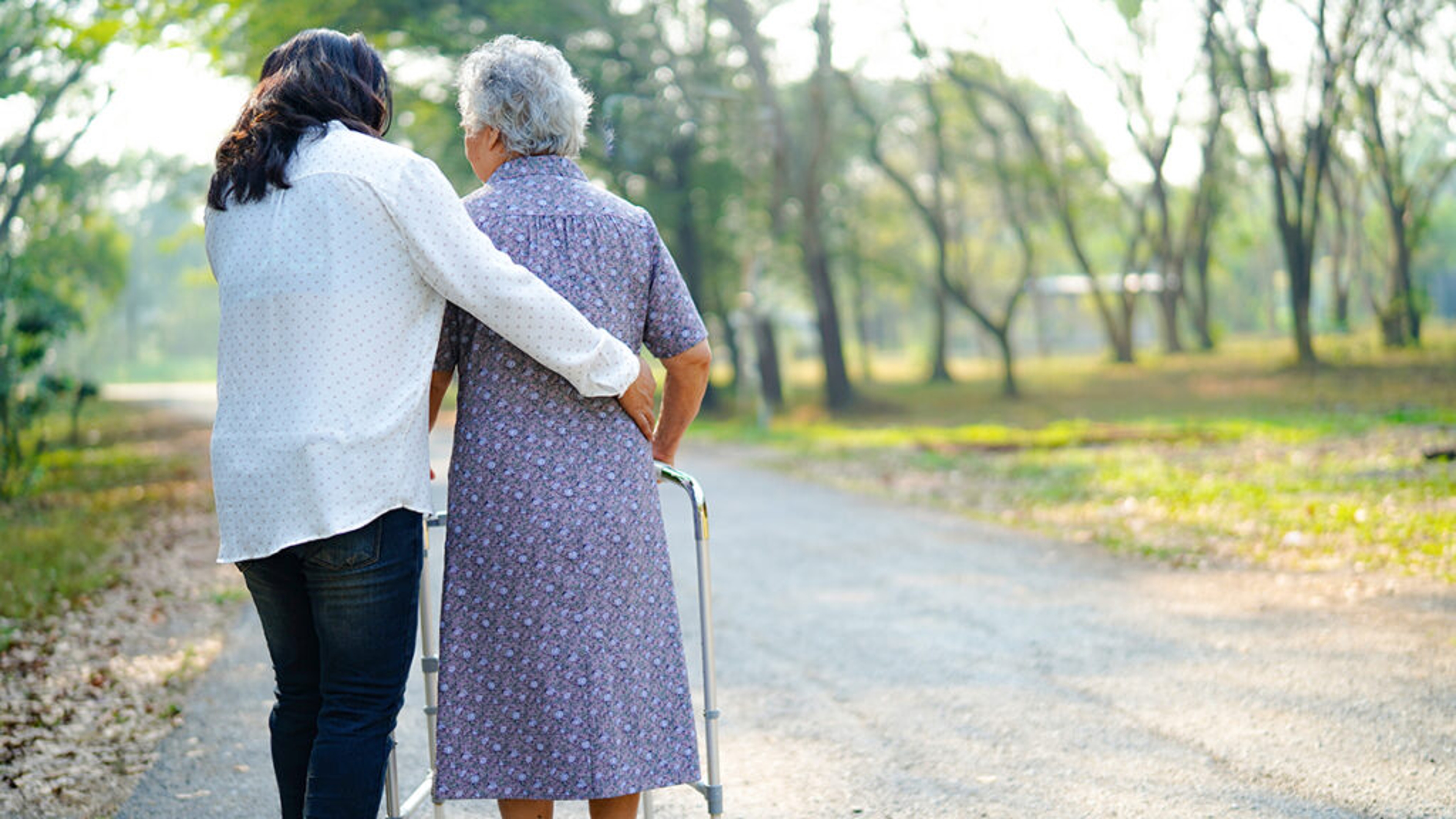Why Caregivers Are Fearless
Caregivers are heroes, even if they're often unsung.
Feb 24, 2023
Gary Barg was living in Atlanta in the mid-'90s while his mother was serving as the primary caregiver for his father who was suffering from an aggressive form of cancer.
“I came in to help my mom out for two weeks and it was horrifying. I'd had no idea what it was like — running to countless appointments, hours on the phone with insurance companies, making these huge life and death decisions," he says. “I remember vividly thinking it was the worst two weeks of my life. But what stuck with me was when I mentioned that to my mother, she had no idea what I was talking about. For her, it had been a normal two weeks. Caregivers just give and give."
That experience is hardly uncommon. For those who haven't worked in the care industry or personally been a caregiver, it's hard to imagine how difficult the task is. The caregiving branch of healthcare is rapidly expanding as the baby boomers are reaching old age, and according to AARP, more than 34 million Americans have provided unpaid care to an adult aged 50 or older. And yet these heroes are often unsung and even worse isolated.
That's why Barg got involved.
Preparing caregivers for what's to come
Barg released the first issue of Today's Caregiver magazine in July 1995 (he remains editor-in-chief) and soon after launched its website caregiver.com to help give caregivers much needed tools and resources. By 1998, Barg began hosting "Fearless Caregiver," an annual in-person conference that unites current and future caregivers to discuss how to navigate the world of caregiving. To date, it's hosted more than 300 conferences all over the country.
The conferences feature panels with experts on an array of topics applicable to those in the role, but Barg says that just as often as not someone in the audience will step up to answer a question.

“There was one panel where someone said they had a hard time keeping their mother from driving while she was on her medications, but she was only driving around the neighborhood," he says, “And four or five people stood up and started explaining how they handle that situation — one son said he gets in the car, another says she tells them it's in the shop. It's the kind of advice you only get from other caregivers."
Helping caregivers realize their own expertise is at the heart of Barg's mission. “Every caregiver is an expert, and we want to give them a space for them to realize that," he says.“They know things about caring for their loved one that no one else knows. We want caregivers to realize they are the CEOs of caring for their loved ones. They are the secret sauce."
And he wants to make sure that they know their abilities and strength. “When you're the fearless caregiver, don't sit in the doctor's office and feel like you have no power," he says. “You know more about your person than they do. You're the one who's with the loved one. A doctor might see them once a month, maybe a therapist comes once a week, but the caregiver is the most important member of the team."
You're not alone
One of the most frustrating aspects of being a caregiver is loneliness — the thought that someone is all alone can be overwhelming. And that isolation can lead to more isolation.
“As humans, we tend to compartmentalize our lives," says Kimberly Whiter, creator of The Care Colloquium and owner of Elder Care Solutions. “We have work time and family time, I work out at this time, etc. But caregiving doesn't fall into any one of the compartments. When you're the primary caregiver to a loved one, it infiltrates everything in your life. There isn't specific time allotted for caregiving, which is why it's so stressful."
Whiter's organization helps caregivers deal with the often overwhelming financial burdens they face. “There's no mechanism for coverage, and people aren't prepared, and even if you are, you'll quickly drain your savings."
And dealing with those financial hardships can make people feel even more isolated and can also spur feelings of resentment and anger.
“Everyone who enters into care will tell you they feel completely alone," she says. “They know other people do this for their loved ones, but while going through it, they feel completely alone. But there's a whole community out there if you want to connect."
Friends and family who aren't the sole caregiver can also do their part to help out, but simply asking if the caregiver is okay, or if there's "anything" they can do isn't the best way to go about it. The experts agree that, despite wonderful intentions, such a vague offer can actually create one more job for the over-taxed caregiver in the form of coming up with a task for the person to do.
“When I was in the caregiver role, what made my heart sing was when someone would just show up and start doing something without being asked," says Whiter. “When someone would just show up with prepared meals and say, 'I'm not staying, but I wanted you to have these.'"
Barg concurs: “Just do it. Come over and help with the laundry. If you're going to the drugstore or the grocery store, shoot a text and ask what you can bring them. It's important for caregivers to see that letting others help is a part of the job."
.svg?q=70&width=384&auto=webp)







